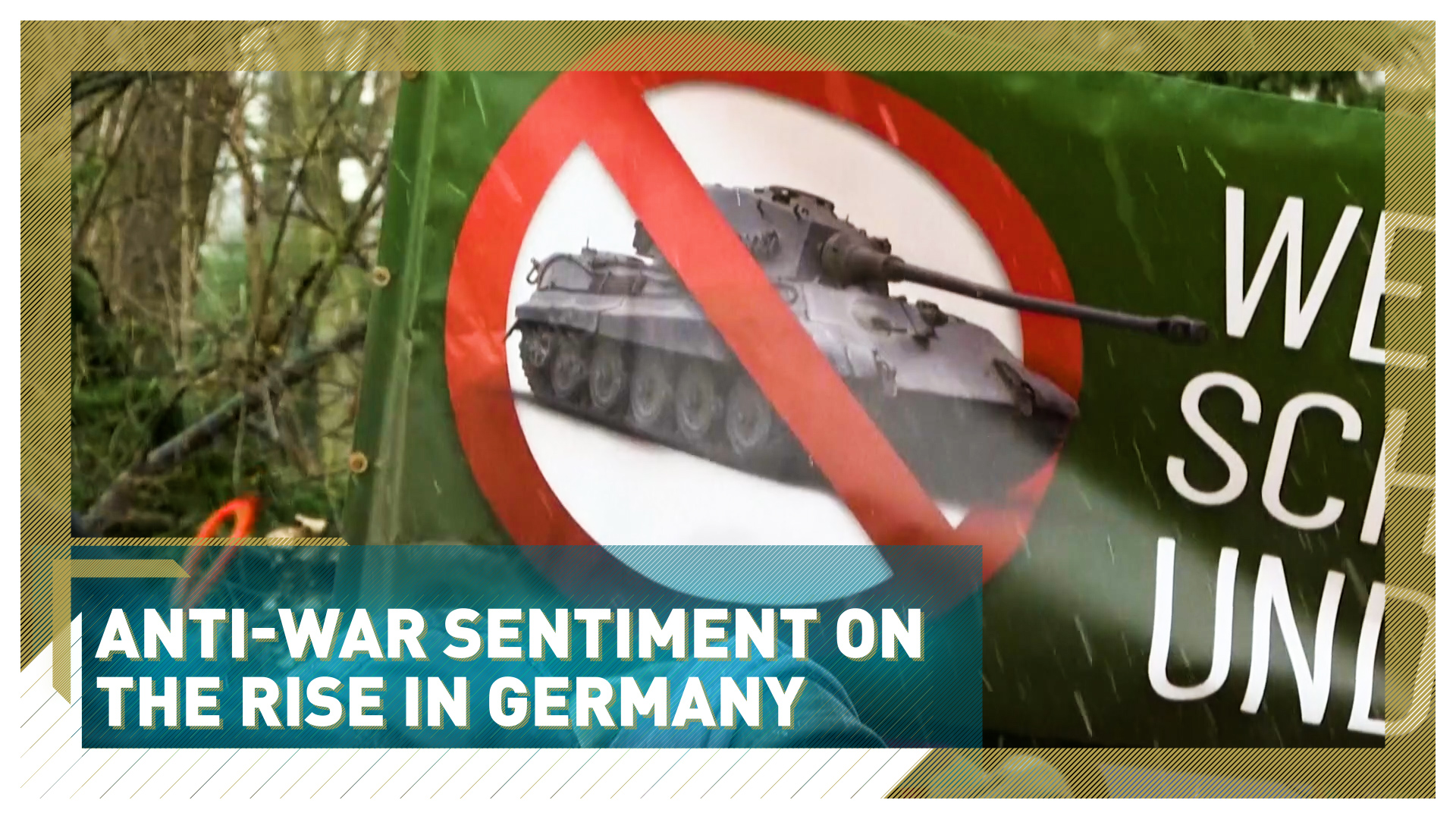03:10

The conflict in Ukraine is now into its second year – and it's changing Europe.
On the eve of the first anniversary, promises of more weapons and fresh sanctions on Russia poured into Kyiv from its Western allies, a show of solidarity for Ukraine's sovereignty.
But not everyone is on board. Over the past year, the conflict has pushed Germany, the EU's biggest economy, to re-define its traditional postwar pacifist stance.
At the start of the war, Berlin announced it would spend more than $100 billion on strengthening its own military capabilities and defense; then in January 2023, after much pressure from fellow NATO members, Berlin agreed to unlock the German-made Leopard 2 tanks – not only allowing others to send their fleets to to the conflict zone, but also agreeing to sending 14 of its own.
READ MORE
Ukraine, One Year On: The EU's response
Inside Ukraine's shattered hospital infrastructure
From hospital to home: Ukrainians find shelter in Bulgaria
Germany, along with the United States, is now one of the biggest suppliers of weapons for Ukraine.
This unprecedented decision has split the German population, with one resident in the southern city of Munich telling CGTN, "I'm a pacifist. It doesn't lead us further. It's just murder, murder. No peace can be established. And we are spending hundreds of billions."
Another resident said he agreed with the delivery of tanks, but "other weapons such as long-range missiles should not be delivered because, as (German Chancellor) Olaf Scholz repeatedly emphasized, we should not become a party to the war."
Not becoming a party to the war is exactly what brought tens of thousands out onto the streets of the German capital Berlin and other European cities last weekend, challenging their governments to de-escalate the crisis by paving the way for negotiations.
Many protesters were holding up anti-war placards. One in Berlin referred to the evolution of German support: "Helmets today, tanks tomorrow, the day after tomorrow your sons."
'There is fear there'
While all NATO member countries have vowed not to send in ground troops, foreign policies of individual countries are being tested.
Moscow has repeatedly threatened that those supplying Ukraine with more powerful weapons "risked their own destruction" and this is leading to fear amongst European populations, says Tim Büthe who heads the department for international relations at the school for politics and public policy, associated with Munich’s technical institute.
"Sure, that fear is there," he tells CGTN. "Russia is a massively nuclear-armed country, and for that reason alone, nobody wants to get into a war with Russia. But the fact of the matter is that Putin has made it perfectly clear that his ambitions are not necessarily limited to Ukraine. So the risk of Germany getting necessarily drawn in if Russia goes any further are substantial."

Anti-war sentiment is on the rise in Germany. /CGTN
Anti-war sentiment is on the rise in Germany. /CGTN
Yet at the same time, many feel that Moscow is not open to fair negotiations, says Büthe.
"About a year ago, there was a strong hope that if you pursue alternative diplomatic solutions, negotiated solutions, that this could be over relatively quickly," he says. "But as time went on, it became clearer and clearer that Putin was completely unwilling and uninterested in a negotiated solution – at least anything that wouldn't involve essentially Ukraine giving up its political independence, which from a German point of view would be equally unacceptable, not least because of a fear of what might come next."
For that matter, many European leaders want to see more from Russia before trusting Moscow to talks.
While meeting with the Latvian Prime Minister on Wednesday, German chancellor Olaf Scholz said it was Russia that needed to make the first strides towards ending the war.
"Russia attacked Ukraine," he said, "and Russia is the country which must take a step now and do something so that peace becomes possible. What's necessary is the withdrawal of troops."
While many across Europe would agree that Moscow needs to pull back, how to get them to do so is up for increasing debate.
Subscribe to Storyboard: A weekly newsletter bringing you the best of CGTN every Friday